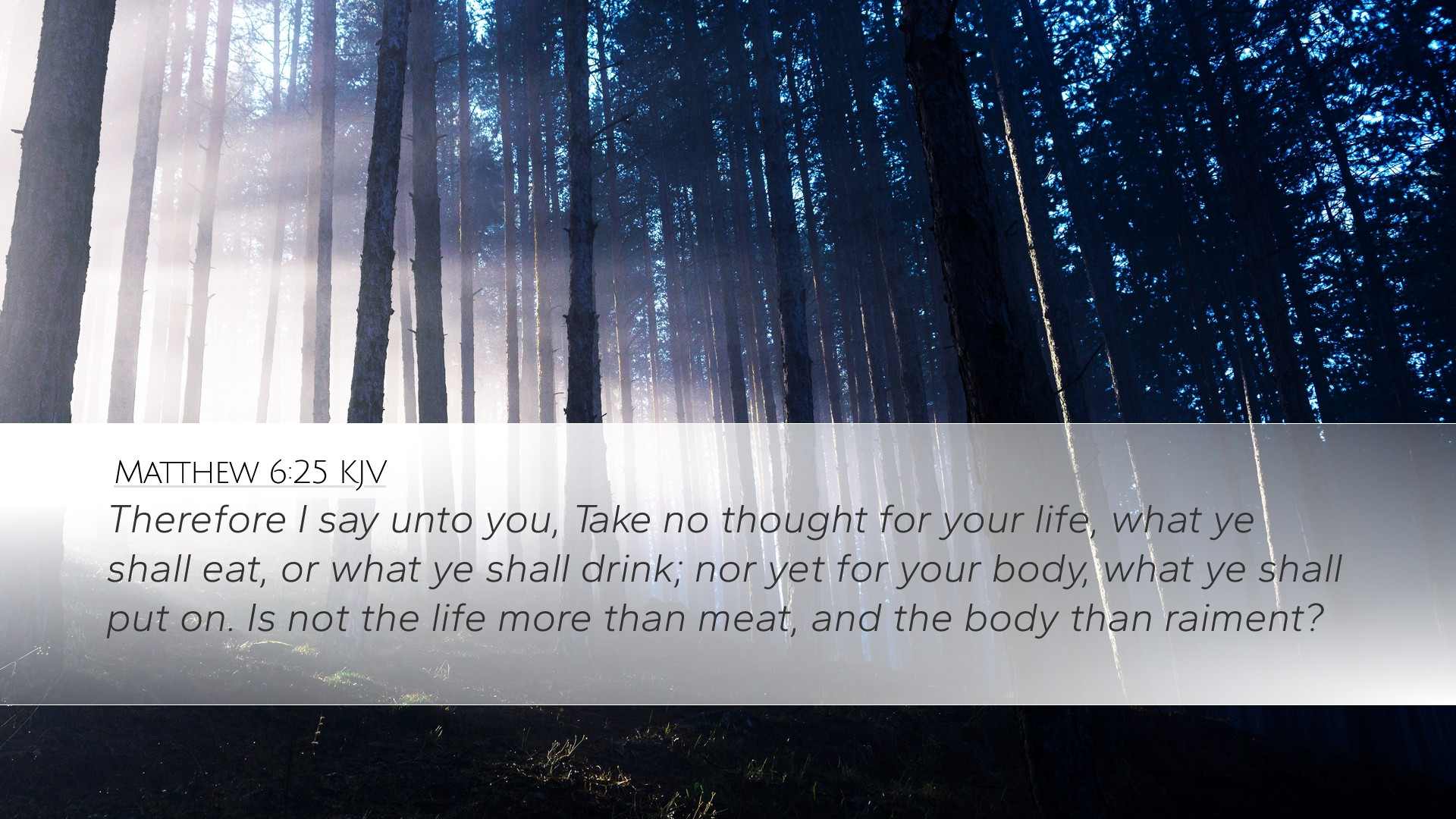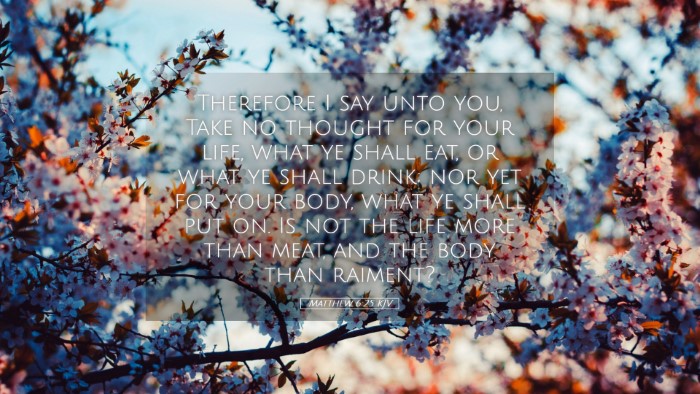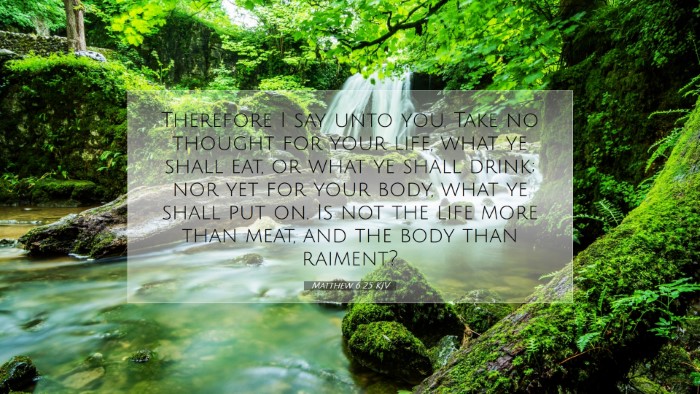Commentary on Matthew 6:25
Bible Verse: "Therefore I say unto you, Take no thought for your life, what ye shall eat, or what ye shall drink; nor yet for your body, what ye shall put on. Is not the life more than meat, and the body than raiment?"
Introduction
In this passage from the Gospel of Matthew, specifically in the Sermon on the Mount, Jesus addresses the anxieties and concerns that plague human existence, especially regarding material needs. This commentary draws insights from historical theological perspectives, highlighting the foundations laid by public domain commentators such as Matthew Henry, Albert Barnes, and Adam Clarke.
Exegesis of the Verse
Jesus begins this verse with a solemn declaration, "Therefore I say unto you." This phrase indicates the weight of His teaching and its imperative nature. It serves as a transition from the preceding thoughts on treasures and earthly possessions, pointing to the futility of worrying about life's basic necessities.
Understanding Anxiety and Provision
Jesus addresses a human propensity to overly concern oneself with the future, especially regarding physical needs—“what ye shall eat, or what ye shall drink; nor yet for your body, what ye shall put on.” Commentators emphasize the holistic nature of Jesus' teaching, as He acknowledges the interconnection between spiritual welfare and earthly sustenance.
-
Matthew Henry: He notes that concerns about sustenance and clothing often lead to distraction from faith and reliance on God. Henry emphasizes that life transcends mere physical existence, urging believers to seek spiritual priority.
-
Albert Barnes: He elaborates on the importance of viewing life from a broader perspective. Barnes interprets "life" as something more profound than daily provisions, suggesting that God’s provision extends beyond temporal needs.
-
Adam Clarke: Clarke highlights that the essence of existence—both spiritual and physical—is encompassed in trusting God for our needs. He points out that worrying is unbecoming of those who profess faith in God's providence.
Life's Value Beyond Material Needs
The rhetorical question posed by Jesus, “Is not the life more than meat, and the body than raiment?”, compels the audience to reconsider what truly matters. Both Henry and Clarke assert that life’s intrinsic value surpasses its material aspects.
The immanent understanding presented in this verse invites believers to reevaluate their priorities:
Spiritual Lessons from Matthew 6:25
-
Trust in Divine Provision: The emphasis on God's provision calls for unwavering trust. Barnes insists that believers shift their focus from worry to faith in God’s promises.
-
The Call to Contentment: Matthew Henry articulates that true contentment stems from recognizing God’s sovereignty over our lives and His ability to provide.
-
Prioritizing the Eternal: Clarke encourages prioritizing spiritual pursuits over material wants, aligning with the teachings found in Colossians 3:2, where believers are urged to seek things above.
Application for Today’s Believers
Understanding this verse encourages modern Christians to analyze their lives in light of Jesus' teachings. The temptations to prioritize materialism over spirituality persist, yet this passage serves as timeless counsel.
-
Challenge of Consumerism: In an age where consumerism predominates, this scripture serves as a counter-narrative, urging believers to reflect on the simplicity and sufficiency of God’s grace.
-
Emotional Well-being: Psychological studies affirm that excessive worrying may lead to degradation of mental health. This verse, therefore, resonates in its call for emotional freedom through faith.
-
Community Support: This teaching fosters a sense of community among believers, encouraging them to care for one another's needs, reflecting the familial heart of God's kingdom.
Conclusion
Matthew 6:25 stands as a profound reminder of life’s priorities, urging believers to abandon anxiety over material sustenance and to place their trust in God. The teachings of Henry, Barnes, and Clarke shed light on the multifaceted nature of this scripture, reflecting a consistent call throughout Christian thought to embrace faith over fear. The lives of believers should embody the understanding that the Lord, as the ultimate provider, renders all earthly concerns secondary to the pursuit of His kingdom and righteousness.


